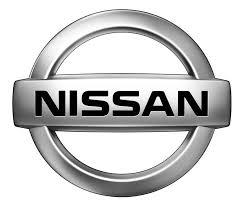Murano FWD V6-3.5L (VQ35DE) (2006)
/Page-1400005.png)
4. Using a flat-bladed screwdriver, remove the piston seal from the cylinder body.
CAUTION: Be careful not to damage cylinder inner wall.
CALIPER INSPECTION
Cylinder Body
CAUTION:
-
Use new brake fluid to clean. Do not use mineral oils such as gasoline or kerosene.
-
Check inside surface of cylinder for score, rust, wear, damage or presence of foreign materials. If any of the above conditions are observed,
replace cylinder body.
-
Minor damage from rust or foreign materials may be eliminated by polishing surface with a fine emery paper. Replace cylinder body if necessary.
Torque Member
Check for wear, cracks, and damage. If damage or deformation is present, replace the affected part.
Piston
CAUTION:
-
Piston sliding surface is plated, do not polish with emery paper even if rust of foreign materials are stuck to sliding surface.
-
Check piston for score, rust, wear, damage or presence of foreign materials. Replace if any of the above conditions are observed.
Check piston surface for corrosion, wear, and damage. If any non-standard condition is detected, replace applicable part.
Sliding Pin, Sliding Pin Bolt and Sliding Pin Boot
Check sliding pin, sliding pin bolt and sliding pin boot for wear, damage, and cracks. If damage or deformation is present, replace the applicable part.
ASSEMBLY
CAUTION: When assembling, use only rubber lubricant specified.
1. Apply polyglycol ether based lubricant to the piston seal, and install them to the cylinder body.
2. Apply brake fluid or rubber grease to the piston boot, place it on the piston, and insert the piston boot cylinder-side lip into the cylinder body
groove.
CAUTION: Do not reuse the piston boot.
